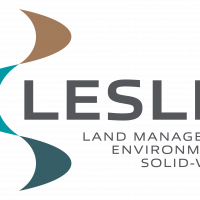LESLIE project
- LESLIE – Land Management, Environment & Solid Waste: Inside Education and Business in Central Asia
Project Acronym: LESLIE
Project Type: Erasmus+ Capacity Building in Higher Education (CBHE)
Duration: 2024–2027 (36 months)
Coordinator: Universitat Politècnica de València (Spain)
Funding: European Union
Website: leslieproject-eu.com
Participating Countries: Spain, Italy, Cyprus, Kazakhstan, Uzbekistan
Project Summary
The Erasmus+ CBHE project LESLIE (Land management, Environment & SoLId-WastE: inside education and business in Central Asia) aims to enhance academic capacity and innovation in Sustainable Land Management (SLM) across Central Asian universities, with a particular focus on Kazakhstan and Uzbekistan.
In response to environmental challenges such as climate change, desertification, land degradation, and increasing solid waste, LESLIE introduces modern educational tools and curricula in line with the European Green Deal and digital transformation goals.
Objectives
-
Establish Sustainable Land Management Hubs in Kazakhstan and Uzbekistan.
-
Design and implement Micro-credentials on Sustainable Land Management.
-
Create digital educational tools for BSc and MSc online SLM programs.
-
Develop a centralized digital repository (Toolbox) for all educational materials.
-
Launch a Future Learning Incubator, applying STEHEAM-based methods (Science, Technology, Engineering, Environment, Arts, and Mathematics) to teach SLM in an interdisciplinary way.
Partners from Uzbekistan
-
Tashkent Institute of Irrigation and Agricultural Mechanization Engineers (TIIAME NRU)
-
Fergana Polytechnic Institute
-
Bukhara Institute of Natural Resources Management (part of TIIAME NRU)
-
Bukhara State University
-
International Agriculture University
-
Ministry for Higher and Secondary Specialized Education of the Republic of Uzbekistan (MHSSER)
Role of TIIAME NRU
TIIAME NRU plays a central role in:
-
Integrating LESLIE micro-credentials into national environmental and land management curricula.
-
Hosting capacity-building workshops.
-
Coordinating digitization of teaching modules within the Moodle/HEMIS systems.
-
Contributing to the Future Learning Incubator by aligning SLM content with industry and policy needs in Uzbekistan.
Relevance to Uzbekistan
The project supports Uzbekistan’s Vision 2030 by:
-
Training a new generation of environmental and land management specialists.
-
Enhancing blended and online learning opportunities.
-
Aligning academic content with labor market and governmental priorities.
-
Promoting green and circular economy principles.
Contact at TIIAME NRU
Mr. Sherzod Rakhmonov
Head of International Cooperation Department
Email: sherzod.rakhmonov@gmail.com




